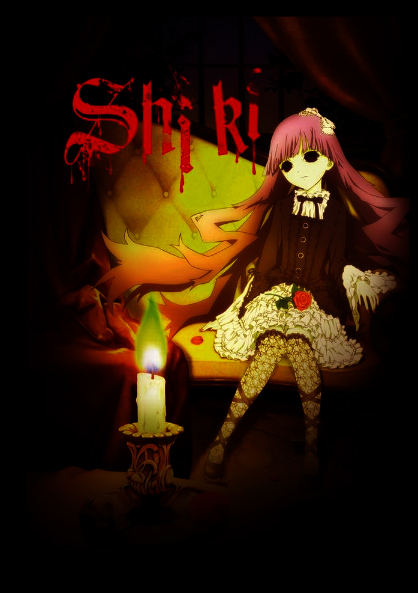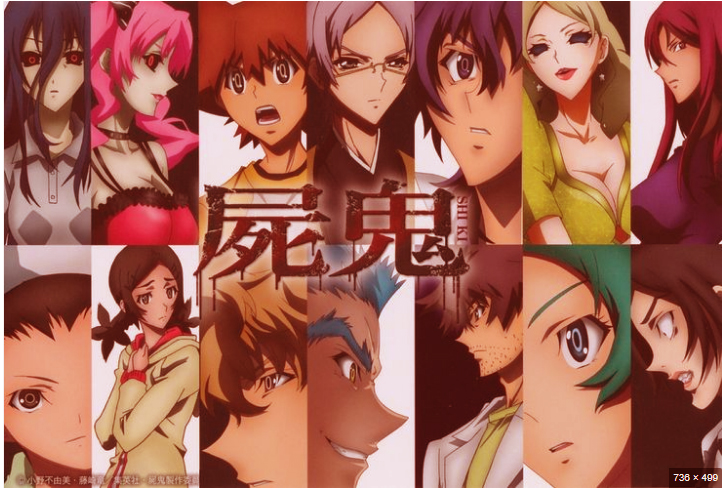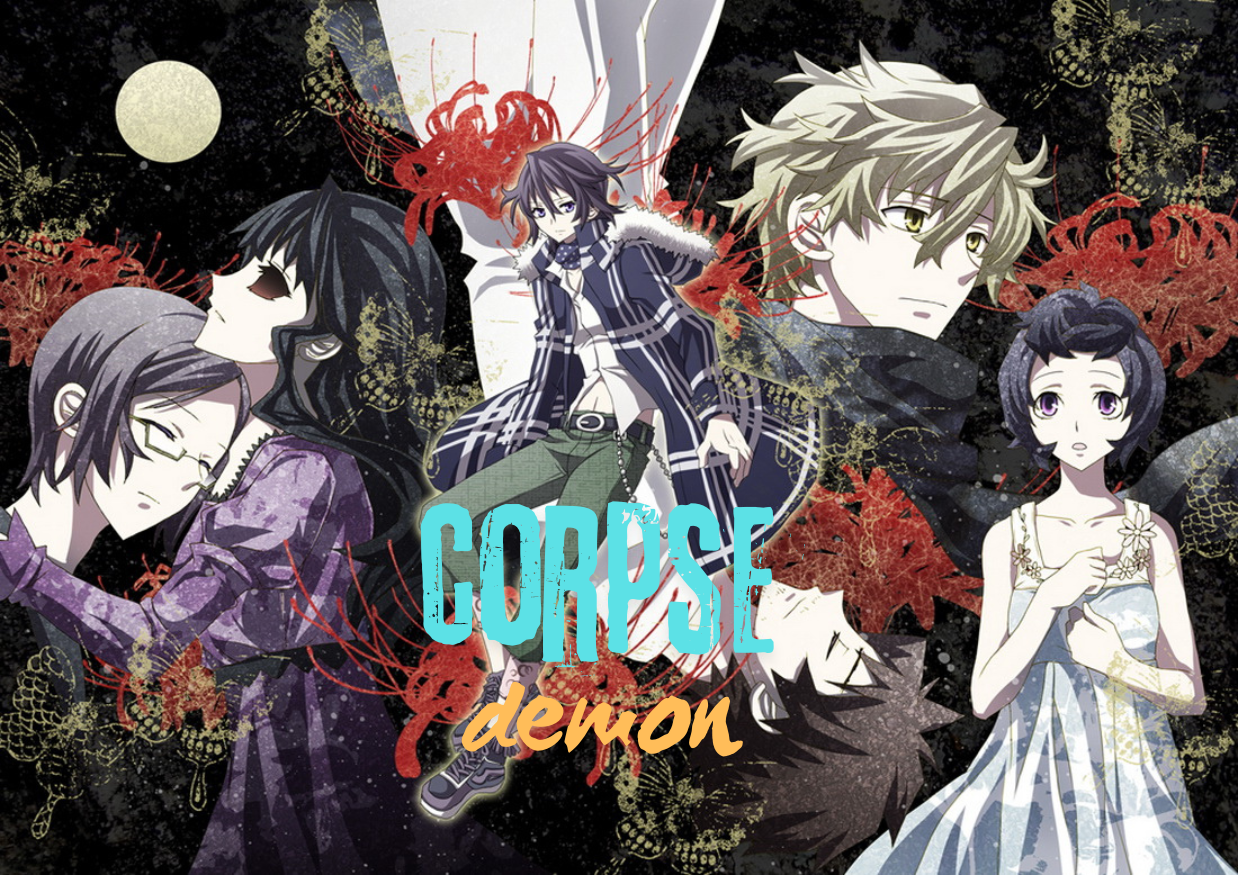If you’re a fan of horror anime, you’ve probably heard of “Corpse Demon” or “Shiki” as it’s known in Japan. With its storyline and corpse demon characters, this series has captured the attention of audiences.
But have you ever wondered what the names of these characters mean in Japanese? Taking a closer look at Corpse Demon characters Japanese names and their meanings, let’s find out what they mean.
“Corpse Demon,” known as “Shiki” in Japan, is a masterfully crafted horror anime that transcends typical genre boundaries to explore profound themes of life, death, and morality.
Set against the backdrop of the quiet, isolated village of Sotoba, the series presents a chilling narrative that keeps viewers on the edge of their seats while prompting deep introspection.
At its core, “Corpse Demon” is not just about the fear of the unknown or the terror of supernatural beings; it delves into the darker aspects of human nature and the moral dilemmas we face when confronted with survival.
The arrival of the Shiki in Sotoba brings out the best and worst in the villagers, forcing them to make harrowing decisions that blur the lines between right and wrong. Throughout the series, this moral ambiguity is a recurring theme, challenging viewers to question their own beliefs and values.
The characters in “Corpse Demon” are intricately designed, with their names carrying significant meanings that reflect their personalities and roles within the story.
As a result of his struggle with the Shiki, Natsuno Yuuki’s name symbolizes resilience and endurance.
Sunako Kirishiki’s name, meaning “sand child,” suggests her fragile and transient existence. Understanding these names adds a layer of depth to the viewing experience, allowing fans to appreciate the cultural and symbolic nuances embedded in the narrative.
Moreover, the series’ exploration of the Shiki as both victims and predators highlights the complexity of their existence. They are not merely monsters but beings driven by the same desires and fears as humans.
As viewers witness the Shiki’s struggle to survive in a world that views them as abominations, this duality challenges their empathy.
In the film, poignant questions are raised about what it means to be human and how far humans will go to preserve their lives and identities.
“Corpse Demon” also excels in its atmospheric storytelling. The quiet village of Sotoba, with its traditional Japanese setting, creates a sense of isolation and vulnerability.
The slow buildup of tension, punctuated by silences and sudden, horrifying events, draws viewers into the villagers’ plight.
The series effectively uses its setting and pacing to build a pervasive sense of dread, making every revelation and plot twist all the more impactful.
Additionally, the series offers a unique opportunity for viewers to learn Japanese through its dialogue and cultural references. “Corpse Demon” can be an engaging and educational experience for those interested in language learning.
What is the Story of Corpse Demon?
The story of “Corpse Demon” revolves around the isolated village of Sotoba, which is suddenly struck by a string of inexplicable deaths.
The narrative begins with the arrival of the Kirishiki family, who move into the long-abandoned Kanemasa mansion.
Following their arrival, villagers begin to die under mysterious circumstances, and the town is gripped by fear and suspicion.
Natsuno Yuuki, a teenage boy who detests the village, becomes one of the central characters as he gets entangled in the mystery. His friend, Megumi Shimizu, who has an unrequited crush on him, is one of the first to fall victim to the Shiki.
As the death toll rises, Dr. Toshio Ozaki and his childhood friend, Seishin Muroi, a local monk, join forces to uncover the truth behind the epidemic.
They soon discover that the Shiki, reanimated corpses with an insatiable thirst for human blood, are responsible for the deaths.
The villagers’ fight for survival against the Shiki escalates into a brutal conflict, raising questions about the true nature of humanity and monstrosity. The story’s climax is both tragic and thought-provoking, leaving a lasting impression on its audience.
What is the Japanese Title of Corpse Demon?

In Japanese, “Corpse Demon” is titled “Shiki” (屍鬼). The word “Shiki” is composed of two kanji characters: 屍 (shi), meaning “corpse,” and 鬼 (ki), meaning “demon” or “spirit.” Together, they encapsulate the essence of the story – undead beings that are both human and monstrous. The title “Shiki” reflects the central theme of the series, which revolves around the struggle between the living and the undead.
Why is it Called Corpse Demons?
The term “Corpse Demons” is a direct translation of the Japanese word “Shiki.” In the series, Shiki are essentially vampires, reanimated corpses that retain human characteristics but are driven by a demonic hunger for blood.
The name “Corpse Demon” highlights their dual nature: they are corpses brought back to life by a supernatural force, existing somewhere between life and death.
The Shiki in the series are depicted as tragic figures, victims of their circumstances, and yet they become predators out of necessity.
This duality is central to the story’s exploration of what it means to be human and what it means to be a monster.
The title “Corpse Demon” effectively captures this complex dynamic, setting the tone for the series’ exploration of morality and survival.
If you like tv shows Japanese names then you might also like City Hunter Anime Characters Japanese Names.
What are the Meanings Behind the Corpse Demon Characters’ Names?

Understanding the meanings behind the characters’ names can provide deeper insights into their roles and personalities. Here are some of the main characters and the meanings of their names:
Natsuno Yuuki:
- Natsuno (夏野) means “summer field.” This could symbolize his connection to the events of the story, which take place in the summer. The name evokes a sense of warmth and vitality, contrasting with the death and decay brought by the Shiki.
- Yuuki (悠木) means “long-lived tree” or “everlasting.” This might represent his enduring spirit and resilience throughout the series, highlighting his struggle for survival against the Shiki.
Megumi Shimizu:
- Megumi (恵) means “blessing” or “grace.” Despite her tragic fate, she brings about significant changes in the storyline. Her name is ironic, given her transformation into a Shiki and the suffering she endures.
- Shimizu (清水) means “pure water.” This could be an ironic twist, given the dark nature of her transformation into a Shiki. It might also reflect her initial dreams of a better life and the purity of her desires.
Sunako Kirishiki:
- Sunako (砂子) means “sand child.” This name might hint at her fragile and transient nature, suggesting a life that can easily slip through one’s fingers like sand.
- Kirishiki (桐敷) is a unique surname, with 桐 (kiri) meaning “paulownia tree” and 敷 (shiki) meaning “to spread.” This could symbolize her influential presence spreading over the village, much like how the Shiki’s influence spreads.
Toshio Ozaki:
- Toshio (敏夫) means “agile man.” This suits his role as the village doctor who is quick to act against the Shiki. His agility in thought and action is crucial in combating the threat.
- Ozaki (尾崎) is a common surname, with 尾 (o) meaning “tail” and 崎 (saki) meaning “cape” or “promontory.” This could symbolize his role as a leading figure in the village’s fight against the Shiki.
Seishin Muroi:
- Seishin (誠心) means “sincere heart.” His character is deeply introspective and conflicted, reflecting the sincerity of his emotions and the moral dilemmas he faces.
- Muroi (室井) is another common surname, with 室 (muro) meaning “room” and 井 (i) meaning “well.” This might symbolize his role as a spiritual guide and his introspective nature, drawing from the depths of his soul like a well.
Interesting Lines and Phrases – Learning Japanese!
Watching “Corpse Demon” can be a fun way to pick up some Japanese phrases. Here are a few interesting lines and their translations:
- “Ningen wa kowai desu ne” (人間は怖いですね) – “Humans are scary, aren’t they?”
- This line reflects the series’ theme of the duality of human nature and the fear that humans can invoke in each other.
- “Koko wa watashi no chiisana sekai” (ここは私の小さな世界) – “This is my little world.”
- Sunako Kirishiki says this, emphasizing her isolation and the personal world she has created around herself.
- “Shiki wa ningen no teki da” (屍鬼は人間の敵だ) – “The Shiki are the enemies of humans.”
- This line underscores the central conflict of the series and the perception of the Shiki as antagonists.
Frequently Asked Question ( FAQ’s )
What inspired the story of "Corpse Demon"?
The story was inspired by Fuyumi Ono’s interest in horror and folklore, particularly the concept of vampires in a rural setting.
Is "Corpse Demon" based on real folklore?
While "Corpse Demon" (Shiki) is a work of fiction, it draws heavily on traditional vampire lore and Japanese folklore. The concept of undead beings and spirits has deep roots in various cultures, and Ono's story taps into these universal fears to create a compelling narrative.
Are there other anime similar to "Corpse Demon"?
Yes, other anime like "Higurashi When They Cry" and "Another" also explore horror in small, isolated communities. These series share a similar atmospheric tension and delve into the psychological and supernatural aspects of horror.
Can learning Japanese through anime be effective?
Absolutely! Anime can be a fun and engaging way to pick up new vocabulary and phrases. By watching anime like "Corpse Demon," you can learn conversational Japanese, understand cultural nuances, and get familiar with expressions used in different contexts.
What makes "Corpse Demon" unique compared to other horror anime?
"Corpse Demon" stands out due to its unique blend of traditional horror elements with deep, philosophical questions about humanity. The story’s exploration of moral ambiguities, the complex characterization of both humans and Shiki, and its atmospheric storytelling make it a unique and thought-provoking entry into the horror genre.
Why do some viewers find "Corpse Demon" so impactful?
"Corpse Demon" resonates with viewers due to its emotional depth and how it tackles existential themes. The series doesn’t just focus on scares but also on the human condition, exploring themes like fear, survival, and the moral gray areas between good and evil. This layered storytelling leaves a lasting impact on its audience.
The Bottom Line
In conclusion, “Corpse Demon” is a remarkable anime that combines horror with deep, philosophical questions about humanity. Its intricate characters, meaningful names, and atmospheric storytelling create a captivating narrative that resonates with viewers on multiple levels.
Whether you’re drawn to the horror elements, the moral quandaries, or the cultural insights, “Corpse Demon“ offers a richly rewarding experience that lingers long after the final episode.
It’s a testament to the power of storytelling in anime and a must-watch for anyone interested in exploring the darker aspects of human nature and the supernatural.
